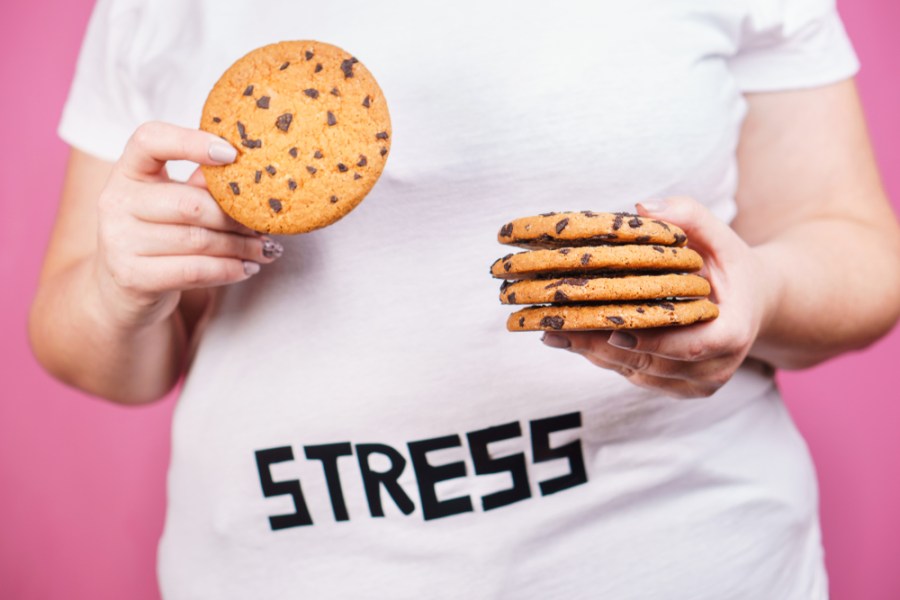This Stress Awareness Month diet expert, Terri-Ann Nunns, shares her advice on how to avoid turning to food when stressed
At some point in our lives, most of us will turn to food for comfort and when we’re stressed, it’s all too easy for it to become the thing that helps us relax. Persistent stress can cause the adrenal glands to release cortisol, a hormone that can increase appetite and make us crave sugary and fatty foods. Reaching for food is often an impulse decision when we’re stressed and despite the temporary high we feel after comfort eating, it generally makes us feel worse.
‘As a busy working mum to four young children, I am definitely guilty of turning to food when stressed. Learning to be in control of what I eat instead of letting food control me was the best thing I ever did and one of the biggest things I teach the followers of my diet plans! Eating mindfully and practicing good habits is a life-changing routine to get into and can do wonders for not just weight loss, but also for your mindset.’ Says diet expert, Terri-Ann Nunns, founder of Terri-Ann’s Diet Plans.
In light of Stress Awareness Month this April, Terri-Ann shares her top tips on how to avoid stress eating.
Keep a food diary
If you’re trying to lose weight and get into a healthier routine, this can be really beneficial, but it can also help identify patterns if you’re a serial stress eater. Keeping track of what you’re eating, how much and when can be really helpful in spotting patterns and help you gain knowledge that will help combat your cravings.
It’s also useful to write down how you feel before and after eating. For example, if you feel stressed and turn to food, keep a note of that and also how you felt after eating. Most of the time, you’ll notice that eating for comfort didn’t make you feel any better and noting this behavior will help you change that moving forward.
Swap eating for an activity
Of course, this is easier said than done but it does work with time and practice. If you can find something that destresses and relaxes you that isn’t food, you’ll find this much more beneficial in the long run.
Meditation, yoga and a good workout are known to be great ways to destress if you have the time. However, if your stress occurs when you’re out and about, simple ways to refocus could include getting some fresh air, taking a moment to breathe and going for a brisk walk.
Stock up on healthy snacks
If you know you’re likely to reach for food when stressed, have healthy snacks on hand in places such as your work desk drawers, car and cupboards at home. This means that if you are tempted to reach for food you know you’ll be eating something healthy that isn’t going to be too detrimental to your diet.
Healthy snacks that are good to have on hand are rice cakes, nuts, low-calorie popcorn, cereal bars and fruit.
Eat mindfully
The next time you find yourself turning to food for comfort take a moment, pause and try to get into the habit of eating mindfully. This will ensure you’re eating for the right reasons, not because you’re stressed and are simply looking for comfort.
To eat mindfully, take a few deep breaths before focusing your mind on whether or not you are hungry. Try to chew your food at least 20 times per mouthful to help slow down your eating. This will ensure you are eating when you actually need and want to, not because it’s a gut reaction to stress.
Give yourself 10 minutes before you give in
The problem with stress eating is that it tends to be a quick reaction and we’re eating before we’ve even had chance to think about it. One minute our brain tells us to reach for the food and before you know it half a tub of ice cream has gone!
When a craving hits, try to relax and be mindful for 10 minutes. If after this time your body is still craving food, try and eat a small healthy snack. Taking time to process what your body actually needs will be beneficial and help prevent overeating and feeling sluggish.
More information about Terri Ann’s Diet Plans









